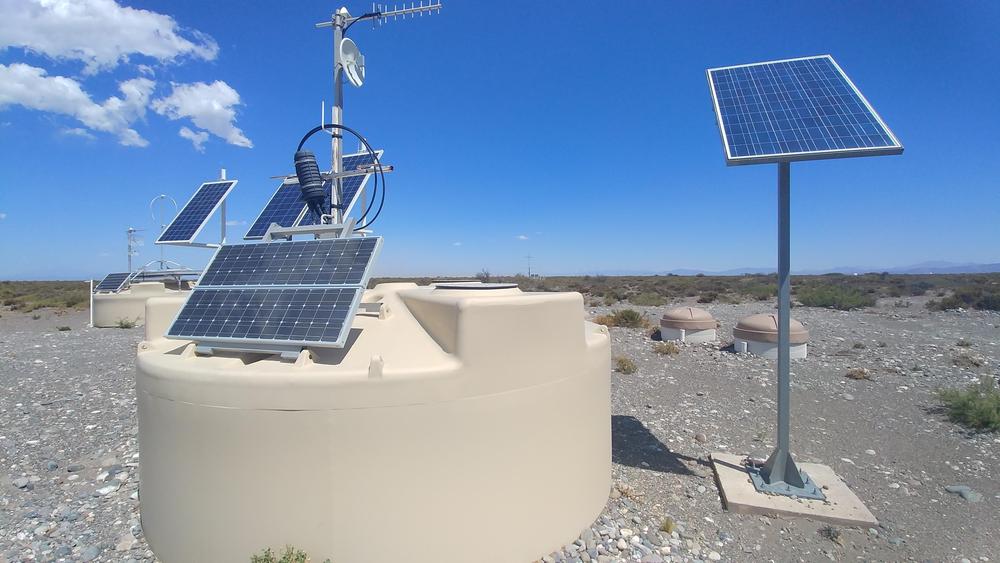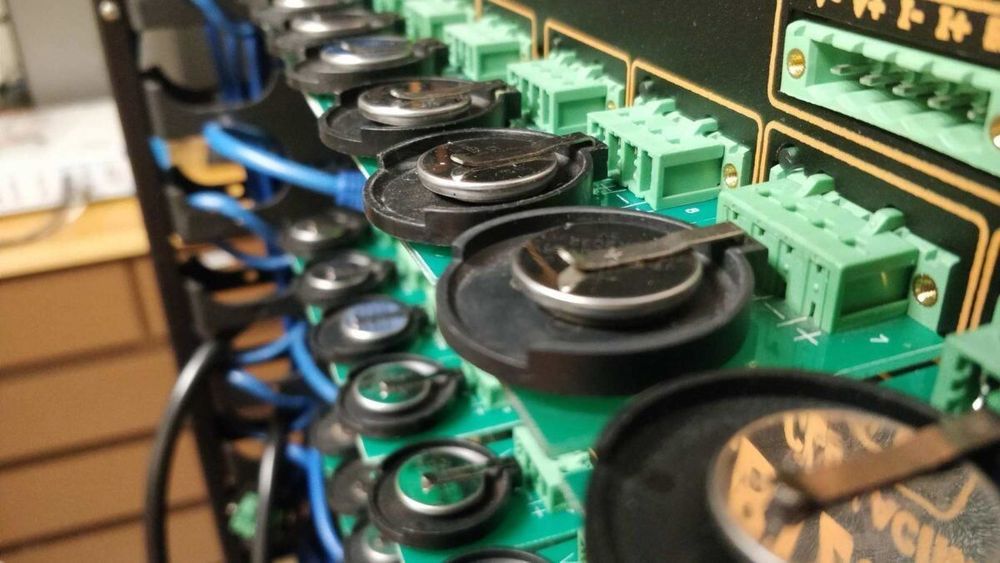Cosmic ray observatory prepares for its next decade of operations.



An interesting article from Australia.
Australia is in an unusual situation, being at once potentially extremely self-reliant and in practice extremely vulnerable to disruptions in international trade.
Whereas disruptions could come from any one of many types of natural disasters or due to politics, I am glad to see that the Australians are seriously considering what it would require to maintain their civilization in the face of disruptions.
Only two or three generations ago most people were more or less self-reliant, and could have continued for years if trade had been cut off with discomfort but no serious threat to civilization itself. Regional scale natural disasters are not so uncommon that we shouldn’t expect at least one every few centuries, yet it seems our global civilization has somehow sleepwalked its way into a state of fragility in which a moderate disruption can threaten civilization everywhere.
I am glad that Australia is looking into ways to maintain essential services in the event of such disruptions, but hope they can resist the urge for heavy-handed central control which creates more problems than it solves. I expect and hope that governments all around the world are currently examining their own vulnerabilities and considering how to mitigate them.
We might be thankful for the current pandemic exposing these vulnerabilities in a way that does not seriously threaten civilization itself. Hopefully we will all learn from it.

Lithium-sulfur batteries have been hailed as the next big step in battery technology, promising significantly longer use for everything from cellphones to electric vehicles on a single charge, while being more environmentally sustainable to produce than current lithium-ion batteries. However, these batteries don’t last as long as their lithium-ion counterparts, degrading over time.
A group of researchers in the Cockrell School of Engineering at The University of Texas at Austin has found a way to stabilize one of the most challenging parts of lithium-sulfur batteries, bringing the technology closer to becoming commercially viable. The team’s findings, published today in Joule, show that creating an artificial layer containing tellurium, inside the battery in-situ, on top of lithium metal, can make it last four times longer.
“Sulfur is abundant and environmentally benign with no supply chain issues in the U.S.,” said Arumugam Manthiram, a professor of mechanical engineering and director of the Texas Materials Institute. “But there are engineering challenges. We’ve reduced a problem to extend the cycle life of these batteries.”
Albert Einstein famously postulated that “the only real valuable thing is intuition,” arguably one of the most important keys to understanding intention and communication.
But intuitiveness is hard to teach—especially to a machine. Looking to improve this, a team from MIT’s Computer Science and Artificial Intelligence Laboratory (CSAIL) came up with a method that dials us closer to more seamless human–robot collaboration. The system, called “Conduct-A-Bot,” uses human muscle signals from wearable sensors to pilot a robot’s movement.
“We envision a world in which machines help people with cognitive and physical work, and to do so, they adapt to people rather than the other way around,” says Professor Daniela Rus, director of CSAIL, deputy dean of research for the MIT Stephen A. Schwarzman College of Computing, and co-author on a paper about the system.
Today’s virtual reality systems can create immersive visual experiences, but seldom do they enable users to feel anything—particularly walls, appliances and furniture. A new device developed at Carnegie Mellon University, however, uses multiple strings attached to the hand and fingers to simulate the feel of obstacles and heavy objects.
By locking the strings when the user’s hand is near a virtual wall, for instance, the device simulates the sense of touching the wall. Similarly, the string mechanism enables people to feel the contours of a virtual sculpture, sense resistance when they push on a piece of furniture or even give a high five to a virtual character.
Cathy Fang, who will graduate from CMU next month with a joint degree in mechanical engineering and human-computer interaction, said the shoulder-mounted device takes advantage of spring-loaded strings to reduce weight, consume less battery power and keep costs low.
Ira Pastor, ideaXme life sciences ambassador, interviews Dr. Stanley Plotkin, Professor Emeritus at both Wistar Institute and the University of Pennsylvania and consultant to the vaccine industry.
Ira Pastor Comments:
So as we sit here a few months into the global covid-19 pandemic, one big question on everyone’s mind is when will we see the first mass produced vaccine against this current strain, especially as it looks like in the United States there will be some loosening of quarantine / “shelter in place” rules in the to re-start the economy.
Dr. Stanley Plotkin is an American physician, scientist, and scholar, in many circles referred to as the Godfather of Vaccines”, who in the 1960s, while working at Wistar Institute in Philadelphia, played a pivotal role in discovery of a vaccine against Rubella virus (also known as German measles or three-day measles), which is now used worldwide (as a key component of the MMR vaccine — a combination vaccine also that protects against measles and mumps) and has worked extensively on the development and application of a wide range of other vaccines including polio, rabies, varicella, rotavirus and cytomegalovirus.
Dr. Plotkin graduated from New York University in 1952 and obtained a medical degree at Downstate Medical Center in Brooklyn. He was a resident in pediatrics at the Children’s Hospital of Philadelphia and at the Hospital for Sick Children in London.
LIVE NOW: Ask us anything about asteroid 1998 OR2, interstellar comet Borisov and comet ATLAS. Asteroid 1998 OR2 will safely fly by Earth on April 29.
Join our Planetary Defense experts on Reddit to ask questions about comets and asteroids: https://www.reddit.com/r/askscience/comments/g9o4yp/askscien…_alma_and/

Scientists have — for the first time — shown how chemical triggers in the nervous system can amplify the pain experienced by mammals in response to certain stimuli.
The pain system probably evolved to alert them to life-threatening dangers. As they approach objects that are extremely hot or cold or are biting them, they experience intense pain — allowing them to get out of harm’s way.
But in certain diseases, that defence mechanism malfunctions and rather than providing a short, sharp shock — it produces long-term, chronic pain, seen with some conditions affecting humans such as neuropathies, arthritic pains or migraines.
Lucid in the sky.

With the curve finally flattening in the US, the ramping up of anti-viral and vaccine trials against SARS-CoV-2—the virus that causes Covid-19—and the launch of antibody tests to screen for previous infection, it seems like science is rapidly moving towards the end game. How exactly the Covid-19 pandemic will finally bugger off into history is still anyone’s guess, but virologists and public health experts generally agree that immunity is key—either through widespread safe and effective vaccination, or when enough of our population has recovered from infections and gained herd immunity.
Well. That’s the hand-waving, shruggie emoji, “eh who knows” short answer.
Like most processes in biology, immunity to SARS-CoV-2 is complex and mysterious, with results that could rapidly diverge into many possible futures. It’s partly why estimates of how long Covid-19 sticks around to wreak havoc can vary enormously, from months to years to…well, seasonal and forever, similar to the flu.